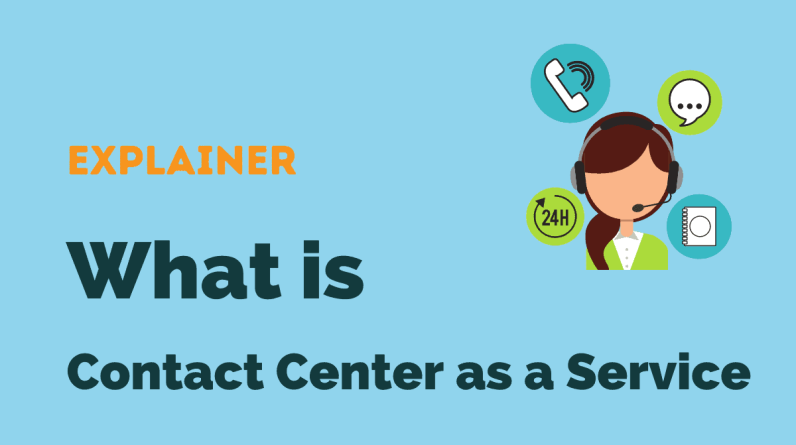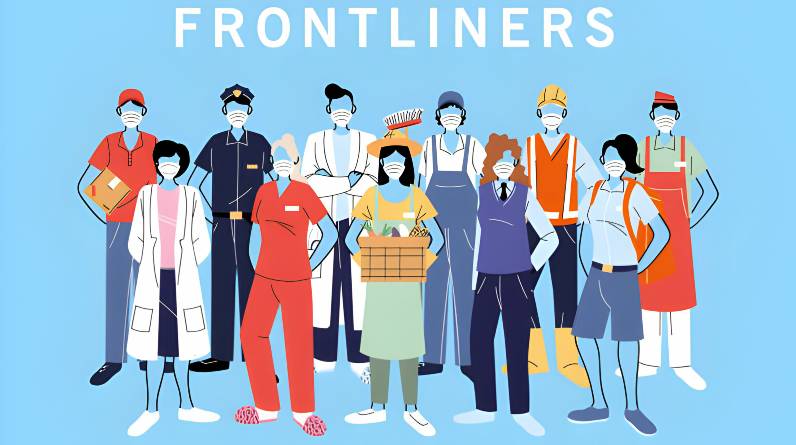
A contact center manages incoming calls and emails from customers seeking technical support. It helps businesses resolve issues, handle billing and credit requests, and address customer complaints.
It can also help you upsell and cross-sell products to your existing clients. A CCaaS solution lets agents view each customer’s product and service history in real-time.
Customer Experience
Often, customers with an issue with a product or service want to talk to someone immediately. Companies that provide a streamlined experience around their most popular communication channels ensure customers feel valued and promptly address their concerns. A CCaaS solution can help businesses connect with customers over various channels, including SMS, email, social media, and phone. Some CCaaS solutions also support chatbots that can handle simple requests, allowing agents to focus on more complex cases and ultimately improve customer satisfaction.
Businesses can also use a CCaaS solution to collect customer feedback via community forums. These discussions allow you to identify common themes and uncover customer pain points while providing a platform for customers to offer suggestions for improvement. In addition to enabling businesses to manage customer interactions through various channels, a CCaaS solution provides a unified dashboard that allows agents to view and access all customer information from one place.
Agent Efficiency
A call center as a service (CCaaS) solution offers multiple advantages for customer support teams. These include connecting with customers via popular digital channels, automation of simpler inquiries, and a unified interface for agent desktops. This enables agents to answer calls faster, which improves first response time and average handle time metrics. It also saves costs and frustration for both customers and the contact center.
CCaaS solutions integrate with existing hardware and software, easing end-user technology management. They also offer a scalable and robust architecture that can be scaled up or down to accommodate changing business conditions without expensive upgrades. When choosing a CCaaS solution, ensure it supports all the popular channels your customers use to connect with your organization. You should also look for a platform that provides automated virtual agents to resolve simple inquiries and take the load off your team. The best CCaaS platforms provide advanced tools to empower agents to perform at their peak. For example, some AI-based solutions let agents deliver next-best-action guidance to customers, reduce AHT by automating post-call wrap-up and enable agent coaching with real-time audio and text analytics. Other tools use a biometric authentication solution that eliminates needing PINs and passwords, removes customer and agent frustration, and improves security.
Scalability
The scalability of a contact center as a service (CCaaS) solution makes it easier for your organization to adapt to customer experience demands. While on-premises solutions require hardware to be housed in a physical location and are managed by your internal team, CCaaS platforms use the cloud to deliver a flexible software platform that can be easily scaled up or down as needed.
When choosing a CCaaS provider, look for companies offering omnichannel orchestration, which manages all facets of the customer journey on one platform. This includes inbound calls, chats, messaging, and self-service AI chatbot interaction. You’ll also want a platform with tools like a unified agent desktop with context, programmable voice and video APIs, and a drag-and-drop application to design workflows.
Moreover, a cloud-based call center solution allows you to eliminate the need for agents to be physically present at their desks during business hours. This is a big selling point for businesses shifting their workplaces to remote work models.
Analytics
The best CCaaS solutions offer built-in reports directly connecting to your most important metrics. They also help you identify trends and patterns, so you can make informed decisions that improve the customer experience.
For example, some CCaaS software platforms can detect recurring calls resulting from a common problem with goods or services. You can then take steps to address those issues, which will prevent future calls from occurring and reduce overall support costs. Predictive analytics is another tool that helps you understand call center data and predict how customers will respond to your business. With a deeper pool of historical data and advanced AI, ML, and automation, predictive analytics can provide accurate forecasts for follow-up calls that drive sales conversions. Other analytics features include digital deflection, redirecting incoming calls to other channels like chat or messaging apps. This can reduce call volume and let your agents first handle the most urgent calls. Other analytics tools can detect recurring problems with certain products or services and help you identify underlying causes to improve customer satisfaction. In addition, a contact center as a service can integrate with your existing technology infrastructure. This makes setting up and deploying new applications that increase productivity, improve customer experience, or boost revenue streams easier. It can also help you cut hardware, deployment, and maintenance costs by shifting the responsibility to your CCaaS vendor.





